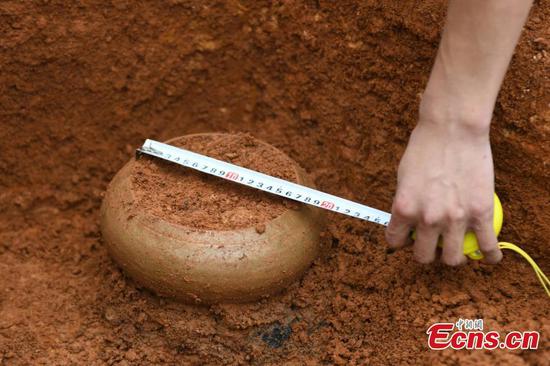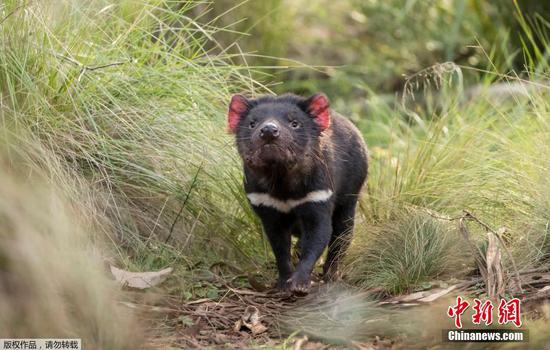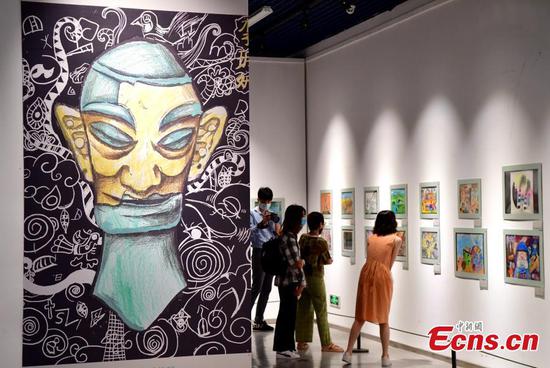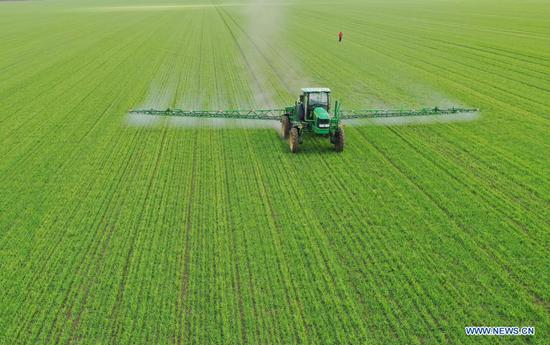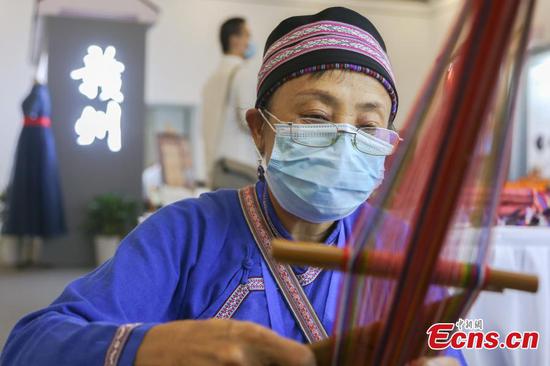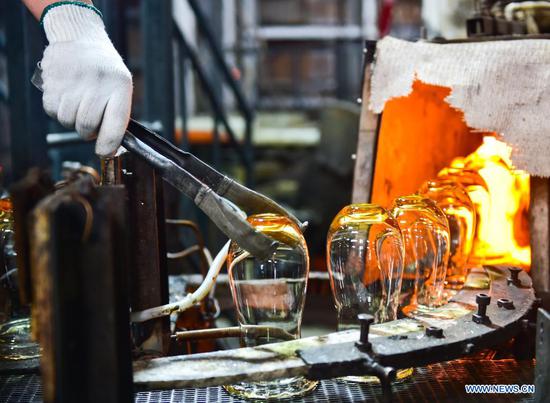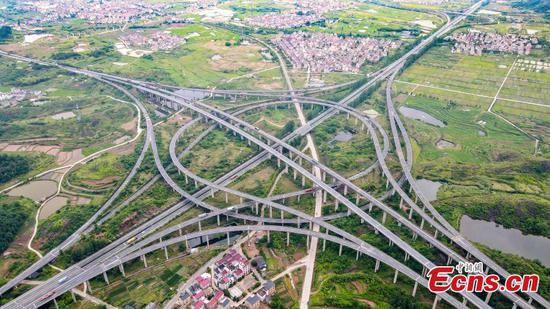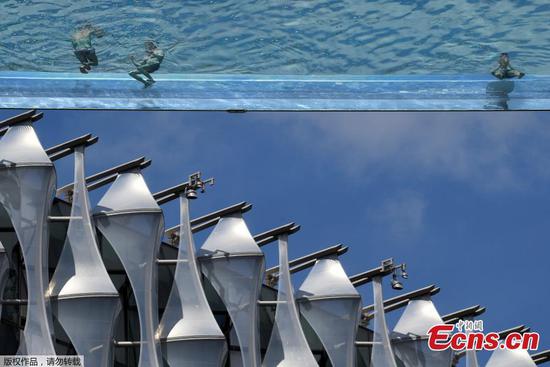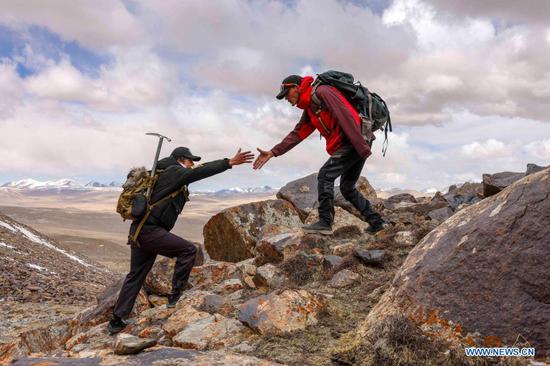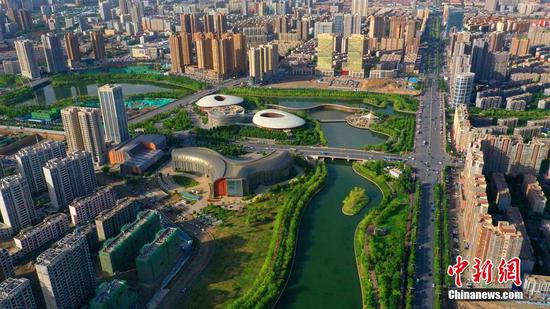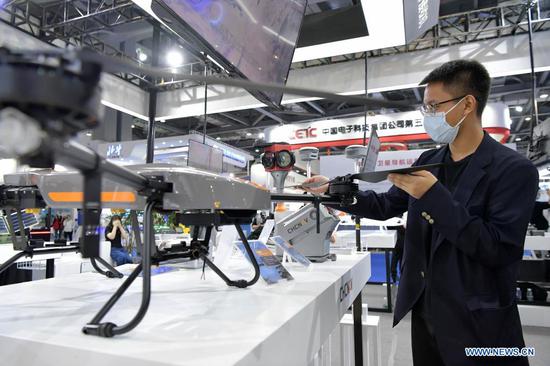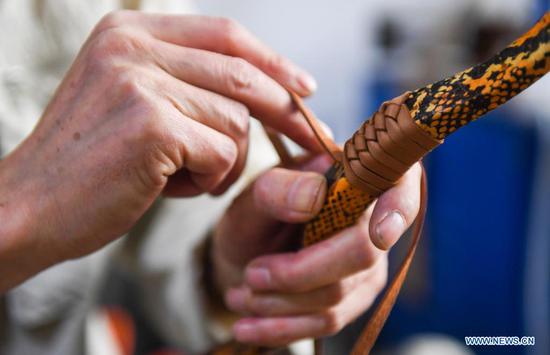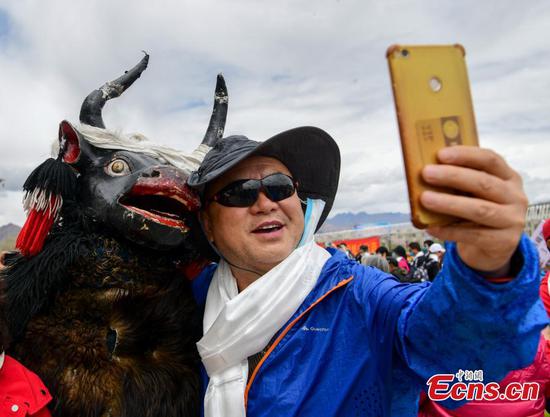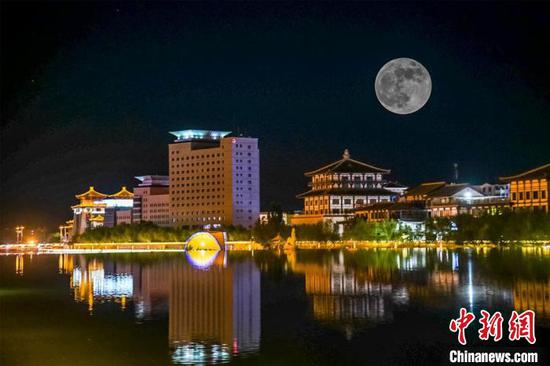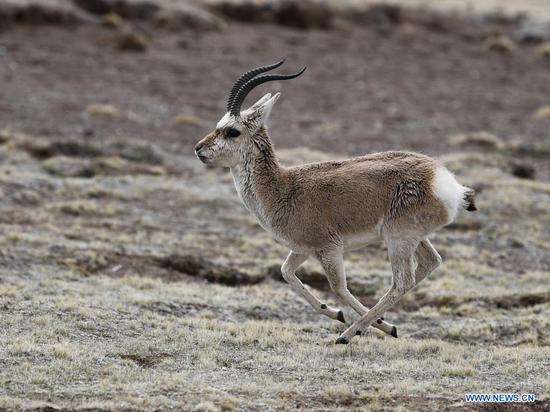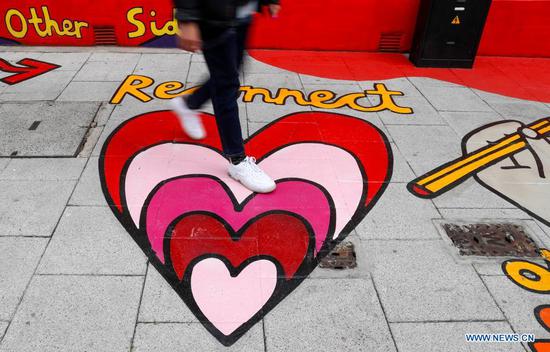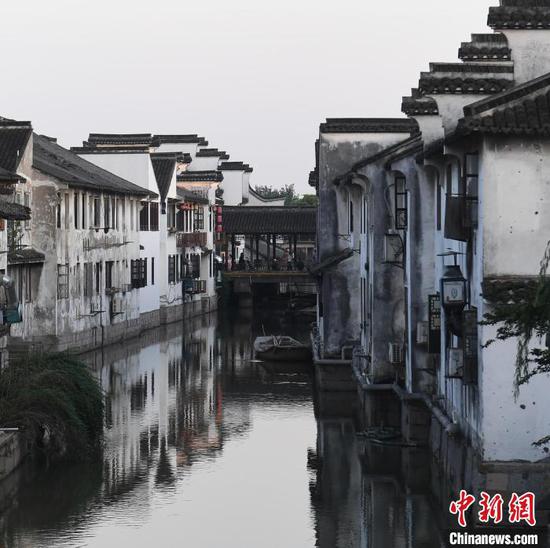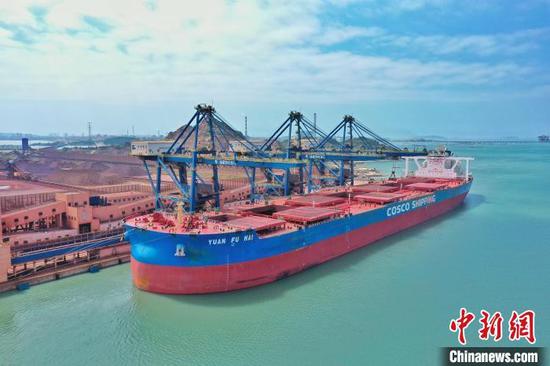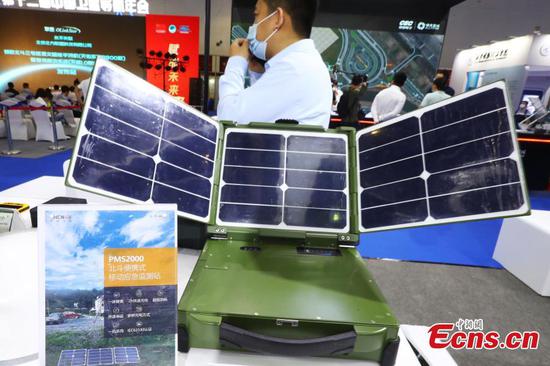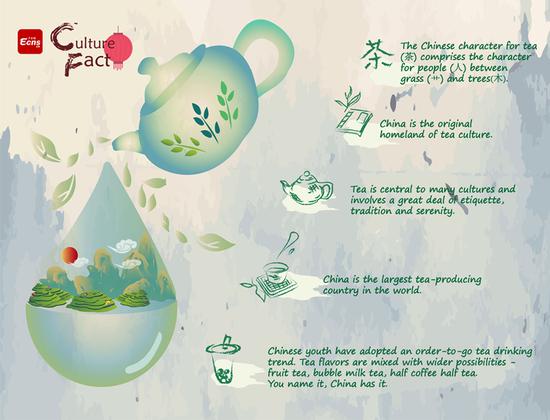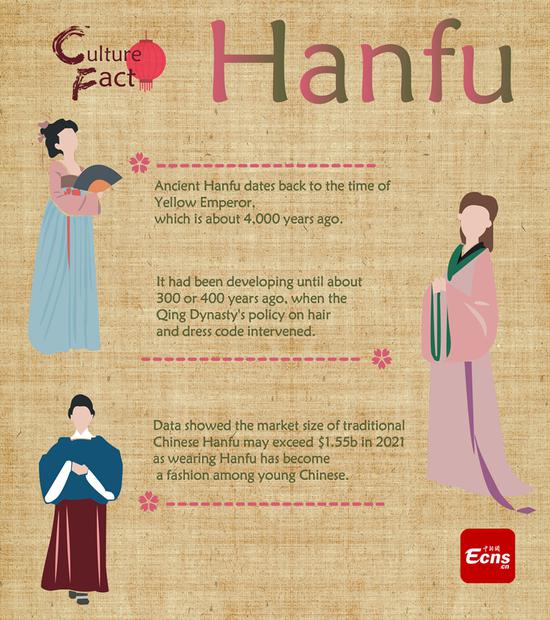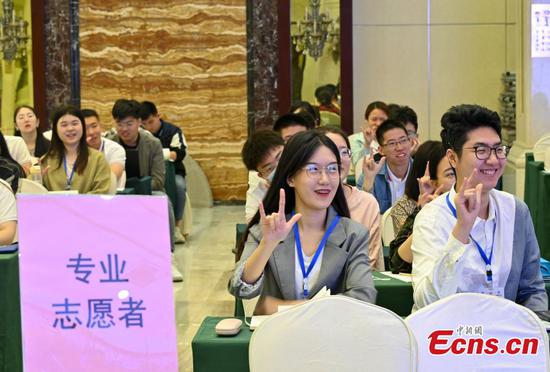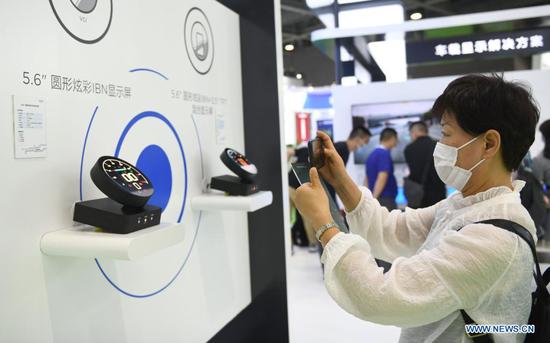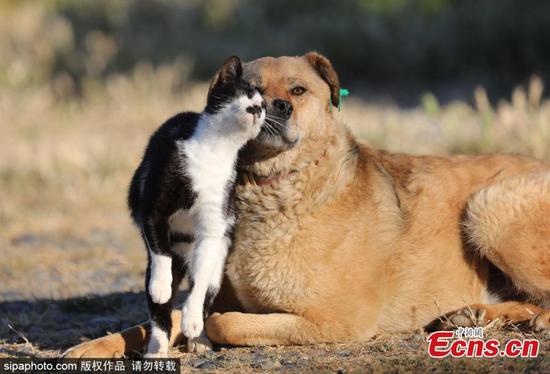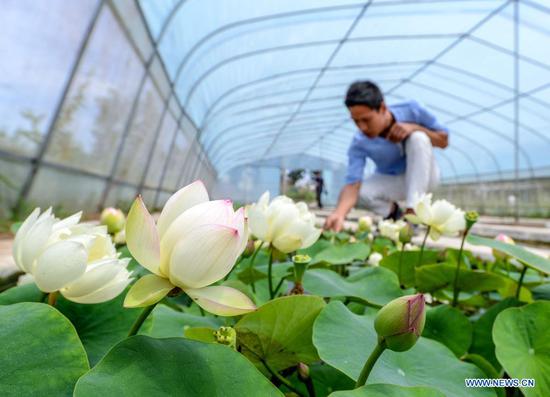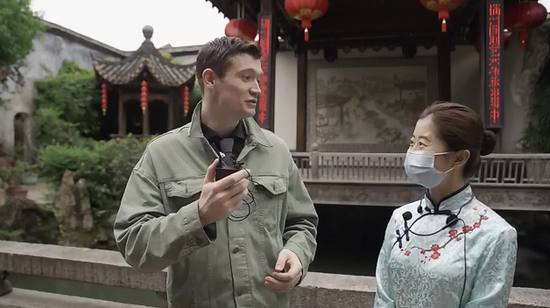39-year-old Wang Zhen, a citizen of Yinchuan, capital of Ningxia, remembered he used to pester his mother for a whole year to buy a pair of table tennis bats when he was a child.
Now he is squeezing his mind to prepare sports activities for children for the coming Children's Day.
"In the past, people didn't realize that children need to exercise, let alone designing activities based on children's needs," said Zhang, head of the Ningxia Children's Physical Exercise Association that was established in 2019.
About 30 years ago when he was running wildly with friends on lanes and roads as a child, he happened to see a pair of table tennis bats in a department store for 50 yuan (about 7.9 U.S. dollars), and his mother bought them for him after he pestered her for a whole year.
There were also few basketball or football facilities at Wang's school, and the track of the playground was paved with coal cinder, unlike plastic ones that could be seen at schools even in China's most remote mountainous areas nowadays.
"We had no PE teacher then and teachers just asked us to play on our own," Wang recalled.
While for Wang's seven-year-old daughter Wang Shuyao, PE class has been an important part of her school curriculum. She has been learning football and table tennis at school, and professional PE teachers will ensure each child has enough exercise each day.
Children of Wang Shuyao's age face more pressure with their studies, and their health has been emphasized at a national level. "National policies and the daily improving living standards help the children's sports market to emerge, and it's becoming more colorful and professional," said Zhang.
Private sports training institutions are rising like mushrooms after rain. Like many urban parents, Wang will spend over 6,000 yuan each year on his daughter's extracurricular sports training, including roller skating, dancing and cycling.
"We are making industrial standards for these institutions to make sure children get the right training," said Zhang.
Sports activities for children are also booming. Wang has led her daughter to take part in many activities including free training for skiing, a children's marathon, and parent-children sports games, which were all organized by the local sports department.
Great changes can also be seen in rural areas.
For Suo Zhiyin, who has been living and teaching in a mountainous village in Xiji county for about five decades, rural children's sports have experienced a "revolution" -- from "the only exercise is doing farm work" to "doing farm work purposely for exercise".
Xiji was the poorest place in Ningxia before China's poverty-alleviation task was accomplished. When Suo was a child, school education was a luxury for children there, let alone sports training.
A dusty loess land was their playground, and the only thing on the land was a "basketball stand" made of a stick, a plank and an iron ring. "A group of children ran around to chase a ball, with dust covering our clothes," recalled Suo.
Suo was frequently interrupted by his parents during class to ask him to come home and herd sheep. He led the herd to slopes and gullies where grass and water was few and far between. In the season of harvest, he had to run under the sunlight to drive away the birds feeding on their crops.
"I sweated doing farm work much more than in PE lessons," said Suo.
For third grader Ye Jiale, who studies at Suo's primary school, standard playground and sports equipment for children are not something new, and professional PE teachers have taught her how to run, skip rope and dance in the right way.
Nowadays, almost all of China's rural areas have benefitted from mechanized farming, and their livestock can drink running water at home, so there is less farm work to do.
After school, Ye's mother will take her to play badminton or roll hoops, and their neighboring parents and children will join them.
"A strong body is more important than anything else," said Hai Lanlan, Ye's mother. To help her daughter receive more exercise, she asks her to help move bricks for her father who has been enlarging the cowshed, or work in the cornfields.









